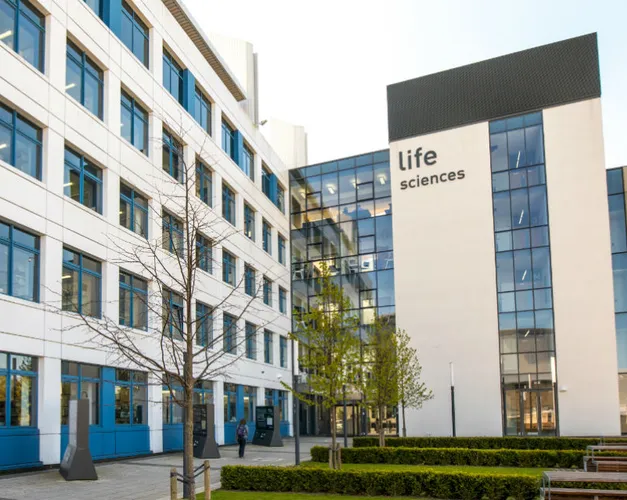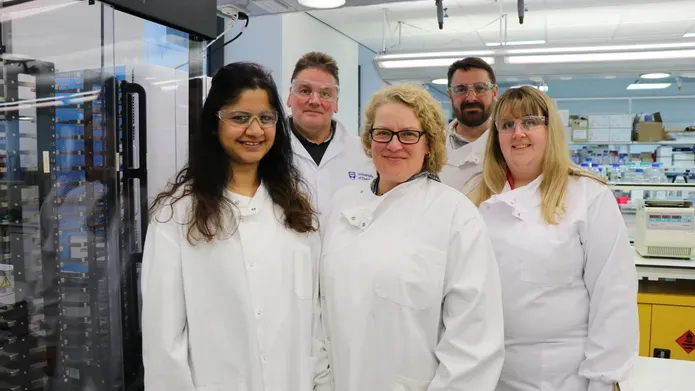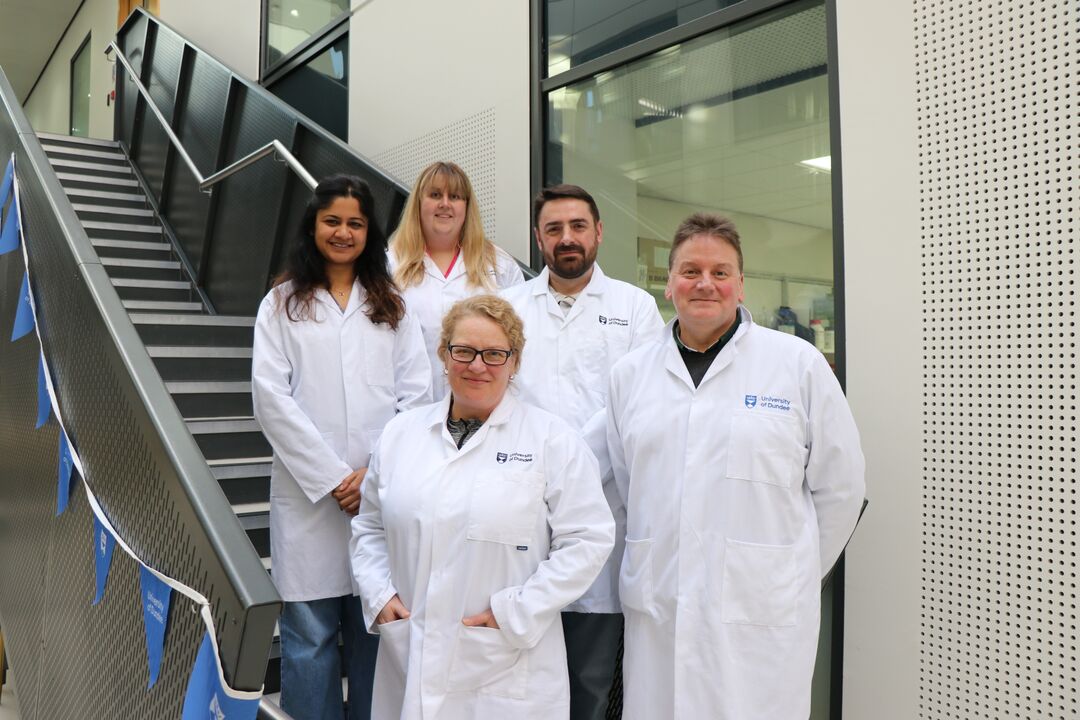Press release
New method discovered to halt active cancer cells
Scientists have discovered a way to stop active cancer cells in their tracks – meaning they can then be eliminated by new drug treatments.
Published on 28 February 2024


A collaborative research project between the University of Dundee’s Drug Discovery Unit (DDU) and Queen Mary University of London, has identified chemical compounds, called tool molecules, that can halt active cancer cells.
Using these tool molecules forces tumour cells from a specific type of breast cancer into a pro-senescence state – similar to a sleep-like state in which they can no longer divide or cause tumour growth.
This condition makes the cancer cells sensitive to a second group of tool molecules, called senolytic drugs, which can eliminate them. It may also ‘uncloak’ the cancer cells, making them visible to the body’s immune system, offering further therapeutic opportunities.
Researchers developed this ‘two-punch’ method while looking at basal-like breast cancer (BLBC).
A team funded by Barts Charity, and led by Cleo Bishop, Professor of Senescence at Queen Mary University of London and Academic Lead for the Phenotypic Screening Facility, uncovered a pathway to force BLBC cells into pro-senescence.
They then collaborated with another team based at the University of Dundee’s Drug Discovery Unit (DDU) to develop tool molecules to promote senescence within the cells.

Drug treatments to deliver the ‘second punch’ of cell elimination are currently being developed elsewhere.
Professor Bishop, said, “At present, the most common treatments for BLBC are surgery and unsophisticated chemotherapy regimens.
“Consequently, the lack of possible targets for tailored therapies and the aggressive clinical course means that women with BLBC have a particularly poor prognosis.
“Pro-senescence therapies activate a stable cell cycle arrest halting tumour growth, trigger anti-tumour immune responses and expose cancers to novel treatment regimes called senolyitcs.”
This research utilised high-content imaging to identify the tool molecules from DDU’s diversity libraries, which have now been selected by pharmaceutical company ValiRx for further evaluation.
Five-year agreement between University of Dundee and ValiRx
The University of Dundee has this month signed a five-year agreement with the company, which focuses on early-stage cancer therapeutics and women’s health.
The pro-senescent ‘first punch’ tool molecules are the first to enter into a 12 month evaluation phase under this agreement and if successful, could result in a new company being established as a joint venture with all three parties.
Dr Charlotte Green, Head of Business Development at the University of Dundee’s Drug Discovery Unit, said, “The one-two punch approach has gained lots of interest in recent years but currently there is no clinical precedent, by moving the project forward with ValiRx we are leading the way in translating the research to the clinic.”
Dr Suzy Dilly, CEO of ValiRx said, “The strength of the DDU and research facilities at Dundee are very impressive, and having reviewed multiple projects from teams there over the past year, we believe that this evaluation agreement will be the first of a series of new projects that can be brought into our pipeline.”
The BLBC subcategory of breast cancer is thought to account for around 8-22% of all cases globally, with the highest BLBC incidence in women from Southern Asian and Black ethnic groups.
It has an early onset of under 50-years-old and, while breast cancer deaths continue to fall, women with BLBC have the poorest prognosis.
For women in the UK, breast cancer accounts 31% of all new cases (CRUK), with breast cancer deaths in England more common in females living in the most deprived areas.